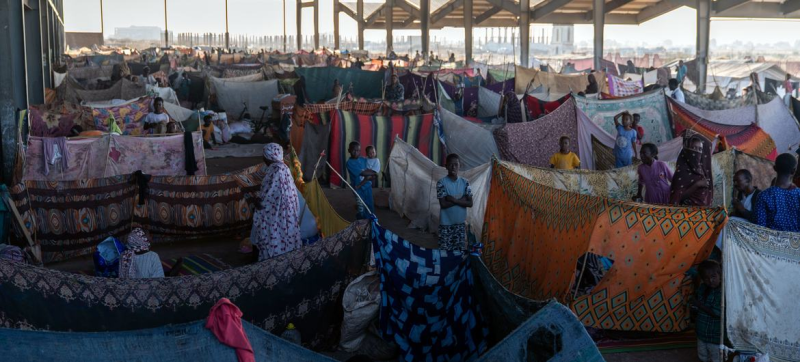- India Sees 9% Drop in Foreign Tourists as Bangladesh Visits Plunge |
- Dhaka Urges Restraint in Pakistan-Afghan War |
- Guterres Urges Action on Safe Migration Pact |
- OpenAI Raises $110B in Amazon-Led Funding |
- Puppet show enchants Children as Boi Mela comes alive on day 2 |
1.3 Million Sudanese Return Home Amid Fragile Recovery

Many people are returning to Sudan despite the uncertain future.
With pockets of relative safety emerging in Sudan, over 1.3 million Sudanese people — including one million internally displaced persons and more than 300,000 refugees — have returned home, according to UN agencies.
“The thousands of people seeking to return home are driven by hope, resilience, and an enduring connection to their country,” said Othman Belbeisi, Regional Director of the International Organization for Migration (IOM).
While this development offers a glimmer of hope, many returnees are heading back to cities and states whose resources have been devastated by over two years of war.
Since the conflict broke out in April 2023, over 12 million Sudanese have been forcibly displaced — the largest displacement crisis in the world.
One-third of these displaced individuals have fled to neighbouring countries such as Chad and South Sudan, which are increasingly struggling to support the influx of refugees.
“Not only do [the returnees] mark a hopeful but fragile shift, they also indicate already stretched host countries under increasing strain,” said Mamadou Dian Balde, Regional Coordinator for the UN refugee agency, UNHCR.
IOM emphasised that, in accordance with international law, all returns must be voluntary and dignified. Most of the 1.3 million Sudanese returnees are heading to Khartoum, Al Jazirah, and Sennar states — areas still deeply affected by conflict.
In Khartoum specifically, many buildings — including the UNHCR office — lie in ruins. Public infrastructure such as roads and power plants has been damaged or destroyed.
“Without urgent action, people will be returning to cities that are in ruins. We are in a race against time to clear the rubble and provide water, power, and healthcare,” said Abdallah Al Dardari, Director for the Arab States at the UN Development Programme (UNDP).
Additionally, Khartoum is already hosting many internally displaced persons and individuals who had sought asylum in Sudan before the current war.
Returnees also face serious threats, including unexploded ordnance and high rates of gender-based and sexual violence against women and girls. To address their psychosocial and protection needs, safe spaces have been set up in Khartoum and Al Jazirah states.
Highlighting the hope these returns represent, Mr Belbeisi emphasised that returnees must be seen as active participants in Sudan’s recovery.
“Those heading home are not passive survivors; they are vital to Sudan’s recovery. Yes, the humanitarian situation is dire, but with the right support, returnees can revive local economies, restore community life, and foster hope where it’s needed most,” he said.
However, humanitarian efforts in and around Sudan are drastically underfunded. Only 23 per cent of the estimated $4.2 billion required for the coming year has been received, raising concerns that life-saving services may be scaled back.
“More than a sign of people’s desire to return to their homeland, these returns are a desperate call for an end to the war — so people can come back and rebuild their lives,” Mr Balde said.

